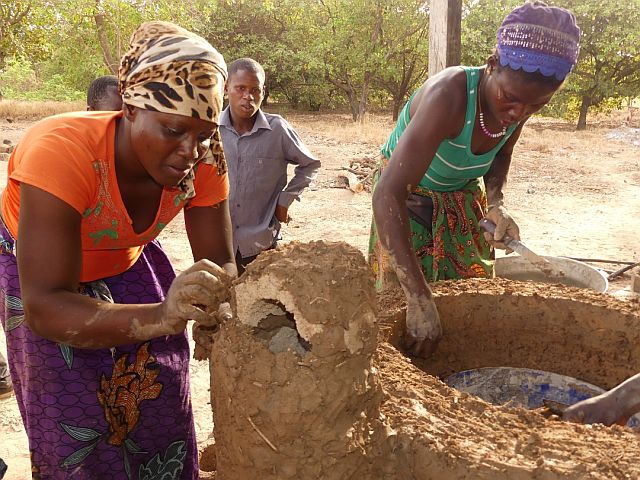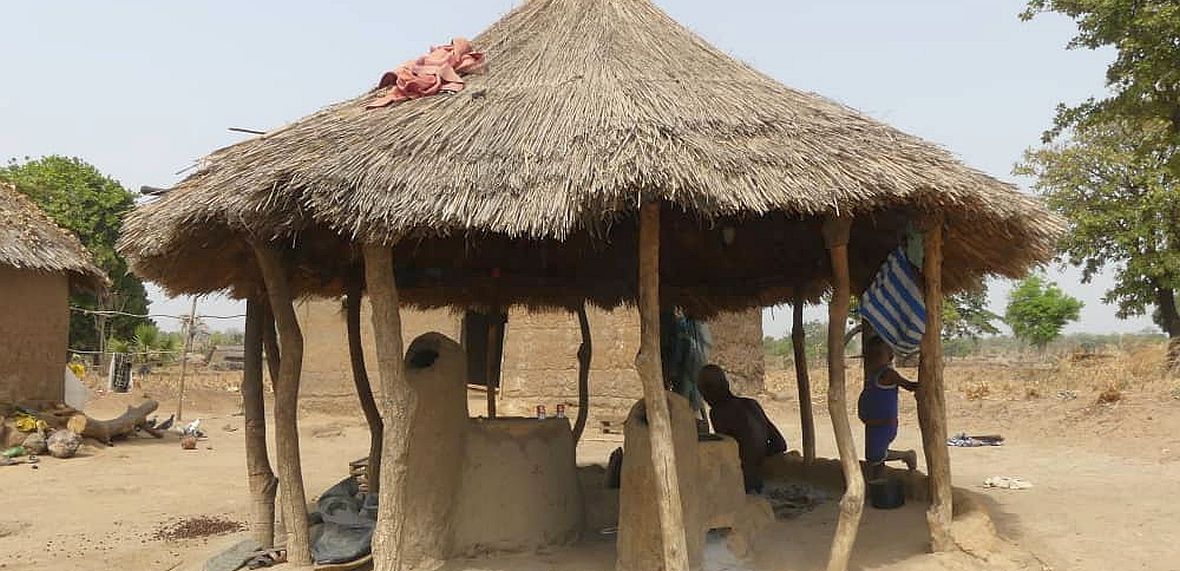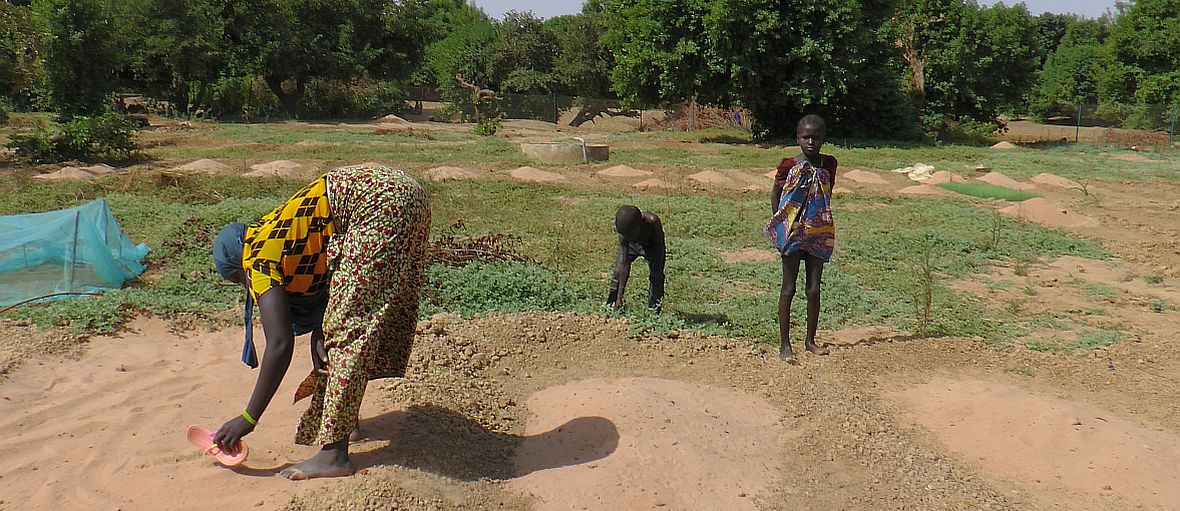 To commemorate this day of March 22, 2020, we provide you with a four-point overview of some of the action mechanisms deployed by Global Water Partnership West Africa (GWP-WA) for several years in different countries of the West African sub-region to support the efforts of governments and other stakeholders to place water at the heart of climate adaptation and resilience planning processes, Integrated Water Resources Management (IWRM) being the core of GWP's action.
To commemorate this day of March 22, 2020, we provide you with a four-point overview of some of the action mechanisms deployed by Global Water Partnership West Africa (GWP-WA) for several years in different countries of the West African sub-region to support the efforts of governments and other stakeholders to place water at the heart of climate adaptation and resilience planning processes, Integrated Water Resources Management (IWRM) being the core of GWP's action.
- We urge governments to leverage water in climate resilience.
The Water Climate and Development Programme in Africa (WACDEP) is being implemented since 2011 in the Volta Basin with focus actions in Burkina Faso and Ghana between 2011 and 2016 with an extension in 2017-2019 to Benin and Mali aim to strengthen the resilience of countries to climate change, and more specifically support to countries focusing on the implementation of nationally determined contributions (NDCs) in the water sector, National Adaptation Plan (NAP) processes, South-South cooperation and support for access to climate finance and other water-related financing mechanisms. The implementation of WACDEP continues in Africa and West Africa over the period 2020-2025 with a focus on developing gender-sensitive investments and financing that enhance water security and climate resilience with a budget of EUR 25 million.
In Burkina Faso, WACDEP supported the integration of water security into the National Adaptation Plan (NAP). In Ghana, WACDEP enabled, among other things, the development of an IWRM implementation investment plan for the White Volta Basin. At the regional level, WACDEP supported the Volta Basin Authority (VBA) to strengthen the integration of climate change into the operations of the basin organisation through assessing the status of water resources management and climate change in the Volta Basin as part of (i) the establishment of an observatory on the basin's water resources and environment and (ii) the development of the VBA Master Plan for Sustainable Development, Water Resources Management and Climate Resilience.
 In the framework of the Integrated Drought Management Project in West Africa (IDMP-WA), the regional component of the Global Integrated Drought Management Programme with the World Meteorological Organization (WMO), we have a review of national initiatives in the field of drought in three countries (Burkina Faso, Mali and Niger), the development of a methodological guide for integrated drought management, support to Benin, Burkina Faso and Niger for the elaboration of their national drought plans.
In the framework of the Integrated Drought Management Project in West Africa (IDMP-WA), the regional component of the Global Integrated Drought Management Programme with the World Meteorological Organization (WMO), we have a review of national initiatives in the field of drought in three countries (Burkina Faso, Mali and Niger), the development of a methodological guide for integrated drought management, support to Benin, Burkina Faso and Niger for the elaboration of their national drought plans.
Together with WMO and VBA, GWP West Africa is making efforts in the six riparian countries of the Volta Basin to facilitate the integration of Flood and Drought Management and Early Warning for climate change adaptation in the Volta Basin through the project financed by the Adaptation Fund over the period 2019-2O23 with a budget of US$ 7.9 million.
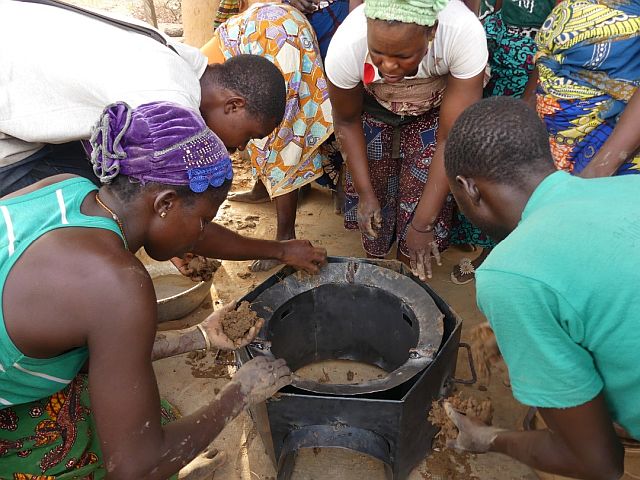
- We are working to empower grassroots actors (women, youth) to strengthen local climate action
Our philosophy for a better impact of climate action is that grassroots community structures are critical. West Africa is one of the most vulnerable regions to climate change impacts according to various testimonies of scientists but also an area where the schooling rate is relatively low with issues related to the equal access to resources for various categories.
TonFuturTonClimat 2017-2020 is a unique opportunity initiative for rural and peri-urban youth to be empowered in agricultural entrepreneurship through three pilot projects in Benin, Burkina Faso and Togo. This project, funded by the Green Fund of Quebec and implemented with the International Secretariat for Water, Eau Vive Internationale Togo and Country Water Partnerships (CWPs) of Benin and Burkina Faso, focuses on building the capacity of young people and women in communities to implement sustainable climate change adaptation projects.
In Benin, the pilot project focuses on initiatives for the sustainable development of climate resilience by contributing to the restoration of the ecosystems of the the Head of the Mekrou River Watershed (Tête de Bassin Versant - TBV) of the Mekrou River, which has its source in the Kouandé district.
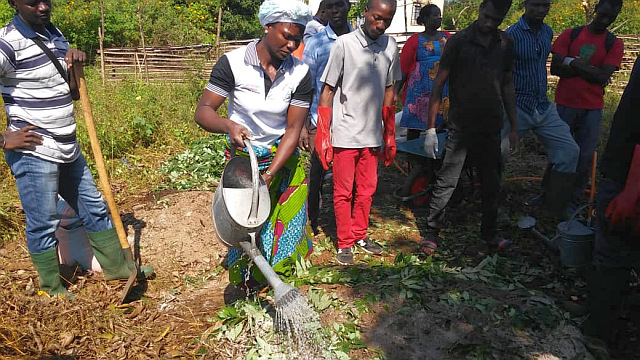 In Burkina Faso, a Sahelian country par excellence, the emphasis is on optimizing water use in agriculture and the development of renewable energy in Ramitenga in the commune of Loumbila through the young people of the SIDWAYA association. The project supports the use of water- and energy-saving technologies for agricultural production and the improvement of the employability of women and young people as development actors in their community.
In Burkina Faso, a Sahelian country par excellence, the emphasis is on optimizing water use in agriculture and the development of renewable energy in Ramitenga in the commune of Loumbila through the young people of the SIDWAYA association. The project supports the use of water- and energy-saving technologies for agricultural production and the improvement of the employability of women and young people as development actors in their community.
The Youth Support Project for the Protection of the Environment, Water and Soil (PAJPEES) in Togo has stimulated the empowerment of young people in the locality of Danyi-Apéyéme with sustainable development actions in the field of agriculture.
The same spirit guided the pilot actions under IDMP-WA implemented in the countries concerned.
In Burkina Faso, the action is focusing on promoting innovative practices of resilience to drought with the establishment of a multifunctional agroforestry park in Komki Ipala.
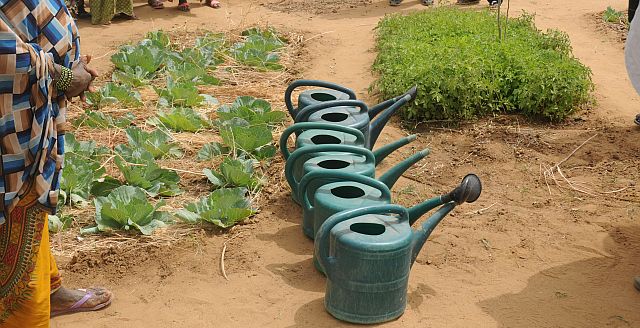 In Mali, the initiative is highlighting the development of CES/DRS actions for agricultural, forestry and pastoral purposes and communication for adaptation to the effects of climate change.
In Mali, the initiative is highlighting the development of CES/DRS actions for agricultural, forestry and pastoral purposes and communication for adaptation to the effects of climate change.
In Niger, the project enabled the development of off-season cultivation sites for the benefit of women in the village of KANKANTOUTI in the department of Torodi, the strengthening of the processing capacities of the women's group of Torodi within the framework of the initiative Les Nigériens Nourrissent les Nigériens (I3N) and the extension of sustainable market gardening techniques at the level of the women's groups of Koygolo and Kadi Beri.
In Ghana, WACDEP has developed initiatives in several rural communities in the north of the country, while supporting the integration of these investments into development planning and decision-making processes in the Upper East districts of the White Volta Basin.
All of these initiatives bring in a package of activities combining capacity building in management (administrative and accounting), the participatory approach, the implementation of innovative and sustainable technologies for the protection and development of natural resources together with youth and/or women's groups and municipal authorities and local notabilities.

- We support the efforts of countries to mobilize financing to deal with climate action
GWP-WA works with different partners to support countries and communities to mobilize financing and increase investment in climate action.
In Benin, the African Development Bank (AfDB)-funded Enhancing Investments for Climate Resilient Development in the Lake Nokoué - Porto Novo Lagoon Complex (RICC) project aiming to promote climate-resilient investments for economic growth, human security and sustainable management of water resources and associated ecosystems in the Lake Nokoué - Porto Novo Lagoon Complex.
The Water for Growth and Poverty Reduction in the Transboundary Mekrou River Basin Project is a pilot project for the transboundary Mekrou River Basin (Benin, Burkina Faso and Niger). It aims to develop planning tools and approaches to enable policy makers and water officials to address the complex challenges related to the management and development of the resource taking into account the transboundary approach. The 1st phase of the project, initiated by the Global Water Partnership (GWP) and the Joint Research Center (JRC), is financed by the European Union to help better manage the resources of the Mekrou River Basin. This contributed to the implementation of, among others, a framework agreement for shared management, a Master Plan for Water Development and Management (SDAGE), a Program of Measures and an Investment Plan (PMPI) for the Mekrou transboundary basin. Decision support tools for planning actions for sustainable development of the basin and water resource management, such as E-Water, have been developed.
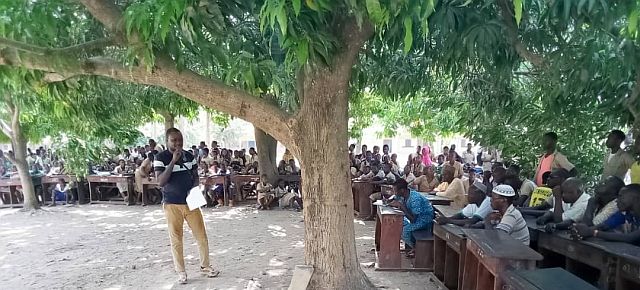
- We mobilize through the establishment and strengthening of partnerships for climate action in the region and the countries
A major focus of GWP West Africa's work is the establishment and/or strengthening of partnerships to support climate action. Thus, within the framework of IDMP-WAF, platforms for integrated drought management have been set up at both regional and national levels in Burkina Faso, Mali and Niger.
The CWPs in 13 ECOWAS are platforms whose purpose and action include the strengthening of climate action through IWRM.
We work with regional integration or development organizations (ECOWAS, UEMOA, CILSS, IUCN, NBA, VBA, OMVS, OMVG, ALG, etc.) to assist countries and communities in West Africa to address climate change related impacts.
